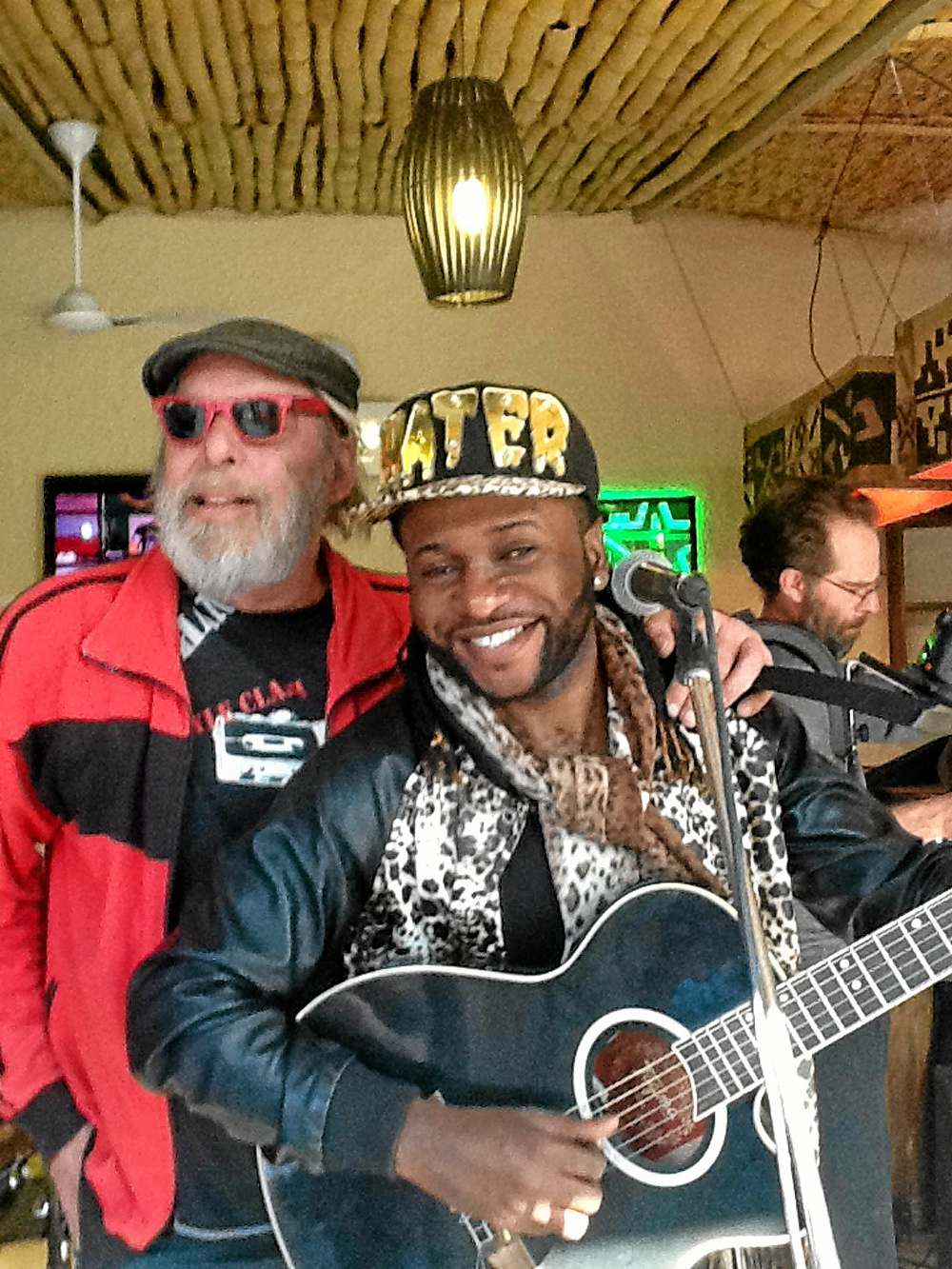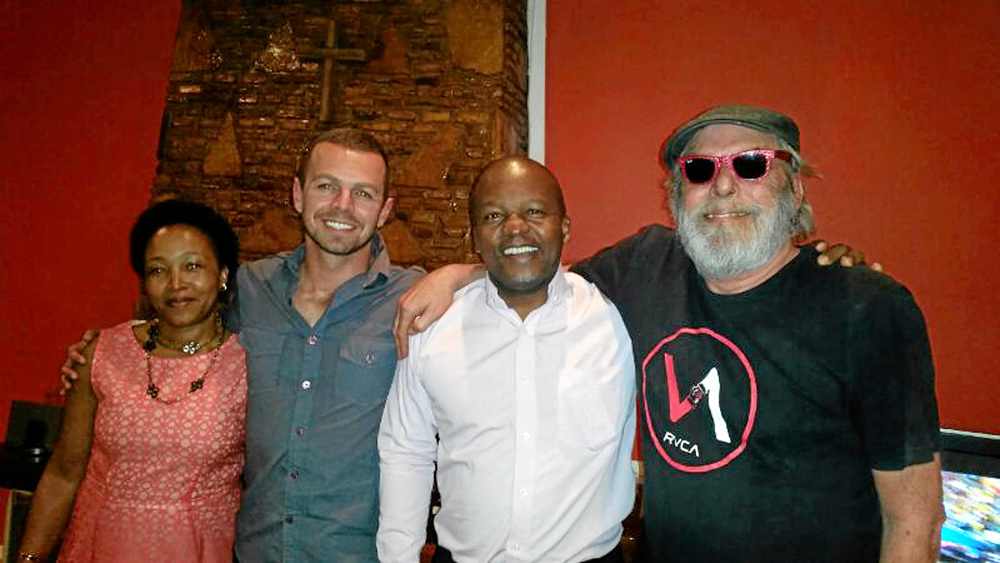Mobile phones contain more than 40 natural elements.
A week before going to Lubumbashi in the Katanga province of the Democratic Republic of Congo (DRC), the poet Johan Lodewyk Marais posted on my Facebook wall: “But the ghost of Leopold II is there.”
From 1885 to 1908, Belgium’s King Leopold II owned the vast area – his own private colony. The Congo Free State he called it.
One of the most evil rulers of all time, he turned it “into a massive labour camp, made a fortune for himself from the harvest of its wild rubber, and contributed in a large way to the death of perhaps 10-million innocent people”, as former BBC Kinshasa correspondent Mark Dummett put it.
Leopold’s agents hacked off the right hands of children and adults, wrote Dummett. “They needed these to prove to their superiors that they had not been ‘wasting’ their bullets on animals. This rule was seldom observed as soldiers kept shooting monkeys and then later chopping off human hands to provide their alibis.”
The Congo Free State was eventually handed over to Belgium in 1908 and gained independence in 1960.
Richest province
Katanga is the richest province in the DRC, blessed with copper, cobalt, diamonds, uranium, tin and more. Copper mining in the province dates back more than 1 000 years.
Katanga produces more than 3% of the world’s copper and more than half its cobalt. But Katanga also has the highest rate of infant mortality in the world. Out of every 1 000 babies born, 184 are expected to die before the age of five.
In July 1960, the pro-West Moise Tshombe, with the help of the mining companies and, unofficially, the Belgian government, seceded the province from the independent Congo. But, in January 1963, United Nations troops captured Katanga and Tshombe fled.

Kwassa kwassa singer M_Joe, who performed with Goosen and Beeskraal. (Photos: Estie Geldenhuys)
Violence remained ingrained in Katanga, because, where there are riches buried in the earth, there will be trouble, corruption, greed, colonialism, deaths, bribes – and war.
My first encounter with Katanga was through my ex-neighbour in Hennop’s River, a man known as Harry the Hound, who fought as a mercenary there. He often reminisced about how the UN troops raided the banks on a Sunday to make sure that they got some form of payment.
Strange holiday
Twenty years ago, I visited Katanga for the first time with a friend on a strange holiday: Lubumbashi, Kolwezi and Likasi. It was also a visit to the jungle heart of Edgar Rice Burroughs’s novels, where Tarzan and Jane used to roam: in the mornings, there were no birds singing. Outside the city, there were no trees. In the zoo, there were no animals. Regarding the last, I was told that “the local population had eaten them all”. I can recall people selling dead monkeys on the side of the road between Likasi and Lubumbashi – one arm cut off to show that the meat was fresh.
In the light of that experience, I was very hesitant when asked to do two shows with the Afrikaans folk-rock group Beeskraal in Lubumbashi for the approximately 2?000 expatriates making a living there.
“Don’t worry, the zoo is full of animals again,” the organiser tried to assure me when I mentioned my previous visit. (“That’s hardly the point,” I thought.) “And we will show you the mines and the huge machinery.” (“No thanks,” I thought. I matriculated in the Welkom goldfields and had seen huge mines and machinery before.)
We flew SA Express in a propeller job, because work is being done on the runway in Lubumbashi and Boeings cannot land on the truncated runway – except, of course, for the CAA (Campagnie Africaine d’Aviation), a regional airline that features on the list of carriers banned in the European Union because of safety and security concerns. They land anywhere.
Our friendly SA Express air hostess asked us to pose for photographs with her before we disembarked. But she warned us about taking photographs in the DRC, a warning we heeded.
Documentary
But filmmaker Neil Sandilands had come along to make a documentary about the trip. He visited the locals and ate local food such as goat intestines and frog legs. He also soon found out that all the permits in the world do not always help – even some local security guards took a shot at a bribe or two when they saw the cameras. Bribes open all the doors.
On the other hand, there is no serious crime problem, the expats tell us. After eight in the evenings, the police are nowhere to be seen. Therefore, drinking and driving is no problem. But nobody wants to land up in jail – or in the hospitals – because the food is inedible; it is not for human consumption, they tell us. A prisoner’s family must look after him, and provide food in jail or hospital. For a small fee, of course.
Three or four people are not allowed to ride on one motorbike at a time, but no helmets are required. The cars hoot constantly, for no apparent reason. They drive on the right-hand side of the road and, for a South African passenger, it is hair-raising. Indicating a left turn actually means you are welcome to overtake and has nothing to do with turning left.

South Africa’s consul general Mahlatse Mminele (third left) and his wife, Ngokoana, hosted the entertainers. With them is Beeskraal’s Kevin Hurter (second from left) and Goosen.
On Thursdays, the shops open an hour later than usual because that is the day when the owners clean the streets and sidewalks.
The DRC’s current president, Joseph Kabila, has a homestead in Lubumbashi as well. For about a kilometre on either side of, and going past it, no one is allowed to speak on a cellphone, listen to music, drive faster than 40km/h or blow a hooter. There are armed soldiers on the walls.
Good cigars
The South African consul general in Lubumbashi, Mahlatse Mminele, and his wife organised a lovely dinner function for us with an excellent meal and wine. And good whisky. He dished out good cigars, which we smoked outside in his garden because his kids do not condone smoking – and he gave up the habit while studying in Polokwane, he told me.
Mminele said that I looked like Che Guevara with my beard, or at least like Fidel Castro.
The shows were very enjoyable under the subtropical winter skies. Beeskraal, yours truly and a local kwassa kwassa singer, M_Joe, entertained. The audience consisted of expats from South Africa and some French and Swahili speakers.
Sepedi-speaking Mminele enjoyed the concert he came to, especially my song Moya, half of which is written in his mother tongue.
I mentioned to him afterwards that I had picked up quite a lot of racist remarks from some of the expats. “Yes, I suppose they won’t talk like that in front of me,” he said.
I find this strange – people going to a so-called “black” country to make money out of them and then still have this old disease inside them.
Quite a gift
I considered it an honour when a Swahili-speaking man came to buy one of my Afrikaans CDs afterwards – and insisted that I accept a gift of a bottle of Jägermeister, too. And in a city 8% more expensive than London, this is nogal quite a gift.
On our way home, Sandilands noticed the armed guard’s AK47.
“Look, it’s the real thing,” he said and was about to touch it.
“Don’t! Leave it alone!” I warned him.
“I think I can connect with this man,” he replied.
“Don’t pull Superman’s cape, don’t spit into the wind,” I replied.
Guy, the other cameraman, interjected: “… and don’t mess around with Jim,” completing the Jim Croce song.
On leaving the DRC, I thought of what American author Chris Hedges said: “The human species, led by white Europeans and Euro-Americans, has been on a 500-year-long planet-wide rampage of conquering, plundering, looting, exploiting and polluting the Earth – as well as killing the indigenous communities that stood in the way.”
Flying back over the African plains, I thought of Katanga. And Elisabethville, which is now called Lubumbashi. And I thought of the ghost of Leopold II.
Anton Goosen is an Afrikaans musician and songwriter.